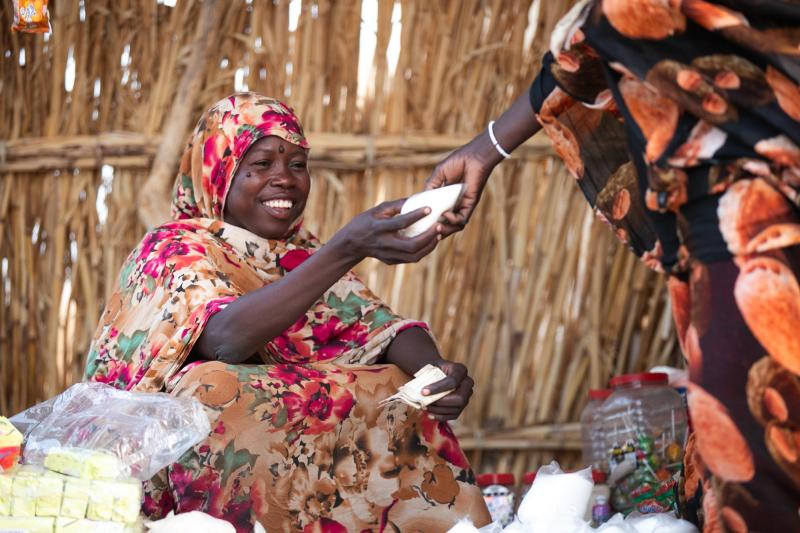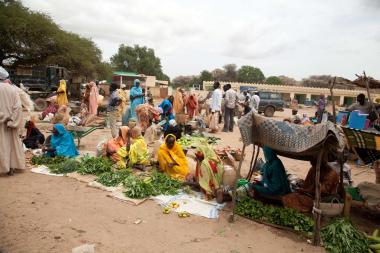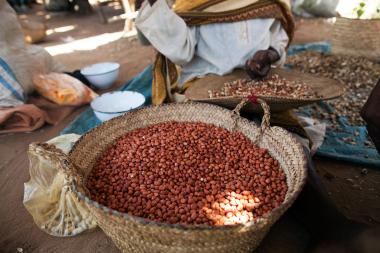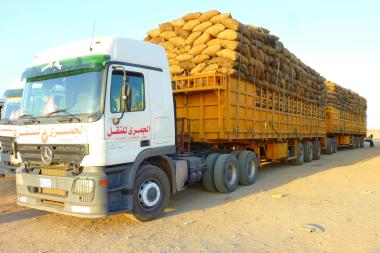Market monitoring and localised research in a context of extreme conflict: learning from Darfur
This brief relays key learning points from pioneering a locally led approach to market monitoring, analysis and research in a context of extreme conflict and insecurity across Sudan's Darfur region.
Since war broke out in Sudan in April 2023, there has been a dearth of information about many aspects of the nature and severity of the humanitarian crisis. This is particularly the case in some of the most conflict-affected parts of the country, such as Darfur.
National actors are the frontline responders. However, the communication channels to share local knowledge and analysis with international humanitarian actors are weak. Most international actors have a limited physical presence in Sudan.
The SPARC-funded project, Understanding markets and trade in a context of extreme conflict and humanitarian crisis, with limited access, in Darfur, Sudan, has thus stepped in to fill this information gap. The project pioneered an approach to data collection and analysis that was flexible and adapted to the context; that was localised; and that listened to local voices and experiences. Its overall aim was to better inform market-oriented and conflict-sensitive humanitarian programming with a deeper understanding of market dynamics and the implications for food insecurity.
The purpose of this brief is to share the experience and learning from an adaptive and pioneering approach to market monitoring and research in a context of extreme insecurity in the Darfur region of Sudan, and shares the key points based on the research team’s collective reflection and learning. It presents an alternative – and indeed complementary – approach to the conventional model of market monitoring that depends upon enumerators collecting data that is often extracted and centrally analysed.
The project approach and ways of working were designed and co-created by Sudanese civil society leaders and researchers working together with an international (non-Sudanese) researcher familiar with the Darfur context and builds on an earlier experience of market monitoring and trade analysis implemented by a national non-governmental organisation (NGO) and numerous community-based organisations (CBOs) over an eight-year period (2008–2016) during the Darfur conflict.
Findings
The alternative and complementary model for locally led market monitoring and analysis is based on a small and well-supported team of experienced researchers on the ground across Darfur. They are well-connected in their local communities and have a deep understanding of the context in which they are working.
In a conflict environment where suspicions run deep, trust is a key ingredient – both between researchers, and between researchers and traders and the local community. Flexibility in the approach and in project management is also essential; plans can be changed and resources reallocated in response to a dynamic situation.
Conventional and linear project management, which is often tied to predetermined and scheduled outputs, is not appropriate.
Additionally, rather than assuming that the project team is always operating at full capacity as in ‘normal’ conditions, it is important to build in buffer time and prioritise the well-being of team members, enquiring first how they are, and adjusting timelines and outputs accordingly. This is the necessary human dimension of working in a war zone.
Policy implications
The Understanding markets project offers a practical model and valuable experience of how to localise research in a war zone:
- It ensures that the voices and analysis of experienced local researchers are heard and valued. This in turn feeds into decision-making about the international humanitarian response, much of which is taking place outside the country.
- The approach is key to maintaining and supporting critical research capability and capacity, both inside and outside Sudan. Universities and research institutes are no longer functioning and, in many cases, research funding has dried up.
- A genuine partnership between an international NGO and national NGO, based on mutual respect and trust, can open channels of communication for dissemination of local knowledge and analysis. This in turn can provide opportunities to influence the international humanitarian response in Darfur.



